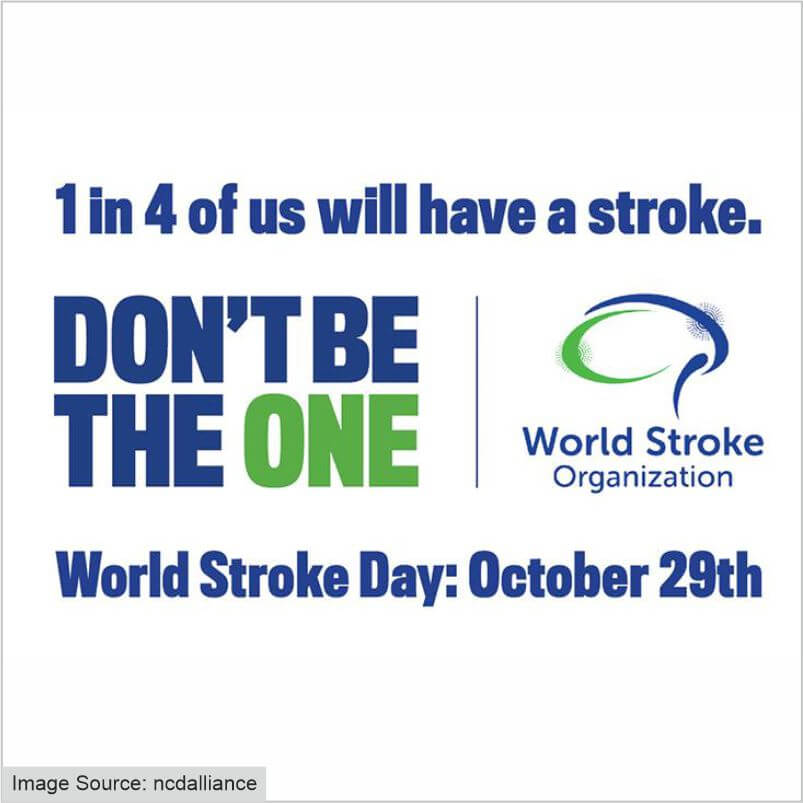Every year on October 29th, the world observes World Stroke Day to bring attention to strokes, preventative strategies, and the continuous healing process. Since strokes are among the world's most common causes of death and permanent impairment, today is a chance to emphasise the value of prevention, early detection, and support networks for those who have had a stroke.
First, clarifying a stroke before discussing the empowering element is important. Damage to brain cells results from an interruption in the blood flow to the brain, which causes a stroke. Hemorrhagic strokes, which come from bleeding in the brain, and ischemic strokes, which are brought on by a blockage in the blood arteries, are the two primary forms of strokes. The effects of a stroke might be minor or severe, including a person's speech, movement, and cognitive function.
How can one empower through prevention, here are 4 ways through which one can attain it:
- Knowledge is Power: Knowledge is the key to preventing strokes. Being aware of risk factors, which include diabetes, obesity, smoking, high blood pressure, and diabetes, gives people the capacity to make decisions about their health.
- Healthy Lifestyle Choices: Individuals are urged to lead healthy lives on World Stroke Day. This includes maintaining a healthy diet, getting regular exercise, and abstaining from bad behaviours like smoking and drinking excessively.
- Regular Check-Ups: Regular health examinations can assist in early risk factor identification and management. When caught early, conditions like high blood pressure and irregular heartbeats, for instance, can be successfully treated.
- Awareness Campaigns: The day's awareness efforts aid in spreading knowledge about stroke risks and ways to reduce them to a wider audience. On this Day, community outreach and educational activities are customary.

Now, how can one empower through recovery here are the 4 ways to achieve this:
- Timely Intervention: To reduce the damage that a stroke causes, early identification and treatment are essential. The likelihood of a patient recovering can be greatly impacted by identifying the symptoms of a stroke and getting medical attention right away.
- Rehabilitation and support: Recovery after a stroke can be a hard and prolonged process. Rehabilitation is essential for assisting people in regaining their independence. This includes speech, occupational, and physical therapy.
- Emotional Support: Stroke sufferers may have emotional difficulties as well. To manage the emotional changes that a stroke might bring about, support groups and counselling services can be a valuable resource.
- Families and Caregivers: Recovery from a stroke affects not only the survivors but also their families and carers. On World Stroke Day, we underscore how critical it is to comprehend and provide support to people who are afflicted by stroke as well as to their carers.
Child Help Foundation and Filaantro assist underprivileged children who face life-threatening medical conditions. The organisation has positively impacted the lives of 44,81,098 people throughout India and it continues to provide children's education in addition to helping with their health. Child Help Foundation does all possible to meet their requirements, including providing the education they must forgo due to their hospital journeys.
On World Stroke Day, people are encouraged to take action by arming themselves with information, resources, and tools to avoid strokes and to help survivors recover and reclaim their quality of life. We can strive towards a future where strokes are less prevalent, less crippling, and less lethal by raising awareness and educating the public about stroke risks, signs, and the road to recovery.
